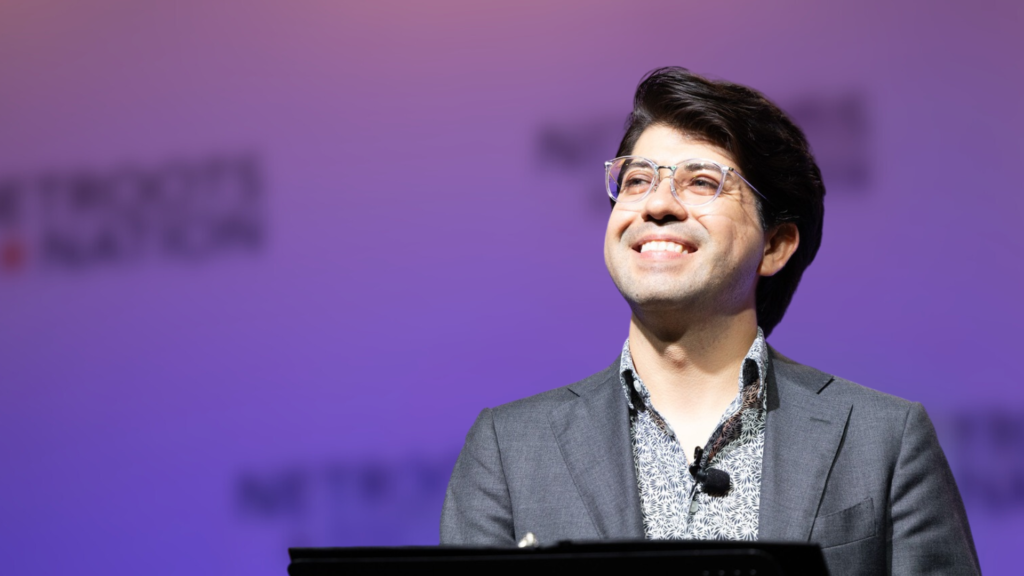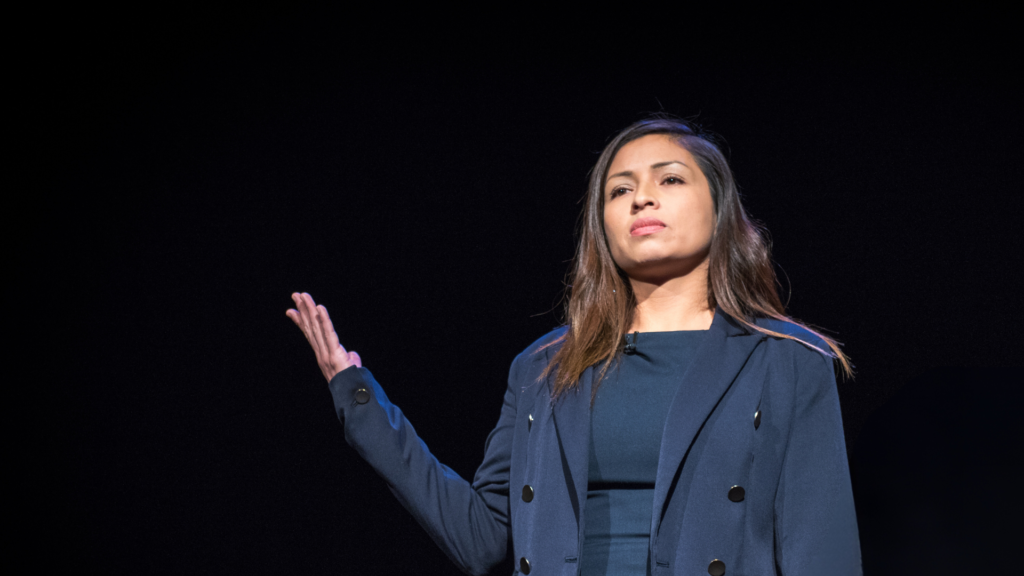
What does it mean to truly empathize with someone who fears your very existence? For Cristian Solano-Córdova, it’s not just a rhetorical question — it’s his reality.
As a DACA recipient and the director of communications, outreach and development for Boulder’s Motus Theater, he’s shared his story countless times in an effort to humanize the lived experience of immigrants.
But even he admits this moment feels heavier. The second Trump administration has already begun, bringing with it a resurgence of anti-immigrant rhetoric and policy proposals aimed at dismantling what little protection undocumented communities have left. And yet, instead of retreating into despair, Solano-Córdova offers something unexpected: understanding.
“This moment in our history is really all about fear,” Solano-Córdova says. “It’s not just our fear, because we're scared, and it kind of hurts to even admit that. But I empathize a lot with all this fear that a lot of anti-immigrant people feel because they've heard this banging of the drums in the media of misleading narratives around immigration. I empathize because the commonality is fear, but we shouldn't be fearing each other.”
That radical compassion is the beating heart of Stories of Migration & Music, a collaborative performance by Motus Theater and the Boulder Philharmonic’s String Quartet on April 26 at Boulder Valley UU Fellowship in Lafayette. It’s an invitation – not to argue policy – but to simply listen.
Co-presented with Being Better Neighbors, the night of storytelling and music features autobiographical monologues by Motus artists Laura Peniche, Alejandro Fuentes-Mena and Solano-Córdova, all of whom have firsthand experience with immigration policy. Each monologue is underscored by violinist Anthony Salvo and followed by a musical response from the Boulder Phil String Quartet, with pieces curated by pianist and Phil education director Dr. Fernanda Nieto.
“I wanted the pieces to reflect not just the tumultuous experiences immigrants have gone through but also the hope, courage and sense of belonging that immigrants develop as they go through these journeys of migration,” says Nieto, who migrated to the U.S. from Mendoza, Argentina. “There is a strength that comes through that is clearly exposed in the stories, and I wanted the music to reflect the power.”

Musical migration
The idea for this performance was sparked by Bob Braudes of Being Better Neighbors, a local nonprofit whose mission is to foster an inclusive community in East Boulder County through events and cross-cultural engagement. A supporter of both Motus and the Boulder Phil, Braudes saw an opportunity to bring people together.
“Some folks will come for the music, some for the stories,” he says. “But the goal is to increase visibility into what’s going on. We want people to realize immigrants aren’t political issues — they’re people.”
And while the monologues being shared at this performance were written in 2018 as part of Motus Theater’s UndocuAmerica project, their urgency has only increased. Solano-Córdova’s story opens the night after the 2016 election, with his younger sister, who was only eight years old, curled up and crying, terrified of deportation.
“She didn't understand the subtleties of the immigration system, but she’s a citizen who was born here, so I had to explain to her that she wouldn't be deported,” Solano-Córdova says. "I end the story by telling my sister how I crossed the border with our mom when we were toddlers, how it was terrifying, but I had faith. I trusted my mother and knew she was doing everything she could to keep us safe and get us a place we could call home. It's about keeping courage alive.”
Another story, Peniche’s, is framed as an open letter to her fellow Christians, recounting her father’s journey across the border with his children, guided by faith and the hope of a safer life. A third monologue by Fuentes-Mena discusses economic exploitation faced by immigrants and his family's lifelong struggle with wage theft.
“Sharing a story is better than just trying to convince somebody through arguments,” Fuentes-Mena says. “Too many people get caught up in this idea of what is right versus what is wrong, and everybody has their own perspective about that. But when you share a personal story, there is no right or wrong. There's just a lived experience, and are you willing to accept it or not?”

‘We’re not stepping back’
These deeply personal narratives, paired with live music, offer something rare: a chance to feel instead of fight. It’s a model Motus Theater has spent over a decade perfecting.
Founded in Boulder in 2011 following a series of local hate crimes, Motus was built on the belief that personal storytelling can spark civic change. From its earliest production, Rocks Karma Arrows, exploring Boulder’s settler-colonial history, the company has consistently placed marginalized voices at the center of its work. Now, as national policies shift and funding for the arts grows uncertain, Motus says they’re not going anywhere.
“A lot of other organizations, like universities and law firms, are bending over backwards to change their language to appease Trump,” Solano-Córdova says. “That's preemptively giving away our power. Self-censoring ourselves isn't going to help anyone. It only helps people in power, and I’m not going to sit silently while my community gets attacked. As an organization, we’re not stepping back from our work because these are human stories from our community.”
That defiance also applies to federal funding. While Motus has received support from the NEA in the past — and continues to apply — they’re not banking on it.
“NEA contributions to Motus's budget are probably around five percent,” Solano-Córdova says. “It would be great to not have to raise an extra five percent but we're going to keep pushing forward because these stories are important. We're not hinging our work on political forces above our heads.”
This includes projects like TRANSformative Stories, which is touring this month to CU Denver on April 15 and the University of Colorado Colorado Springs on April 23, as well as new monologue series Youth Behind and Beyond Bars and What Love Requires, both of which will premiere later this year. But for now, all eyes are on the Boulder Valley UU Fellowship, where strings and stories will intertwine.
“I'm hoping that people who think immigrants are taking advantage of the country will show up,” Nieto says. “There's something profound about hearing somebody's story and understanding there’s a fundamental connection we all share as humans. This isn’t about making people cry. It’s about offering a moment to reflect, connect and let someone else’s experience get in your heart.”
ON STAGE: Stories of Migration & Music with Motus Theater and the Boulder Philharmonic String Quartet. 4 p.m. Saturday, April 26, Boulder Valley UU Fellowship, 1241 Ceres Drive, Lafayette. Free
